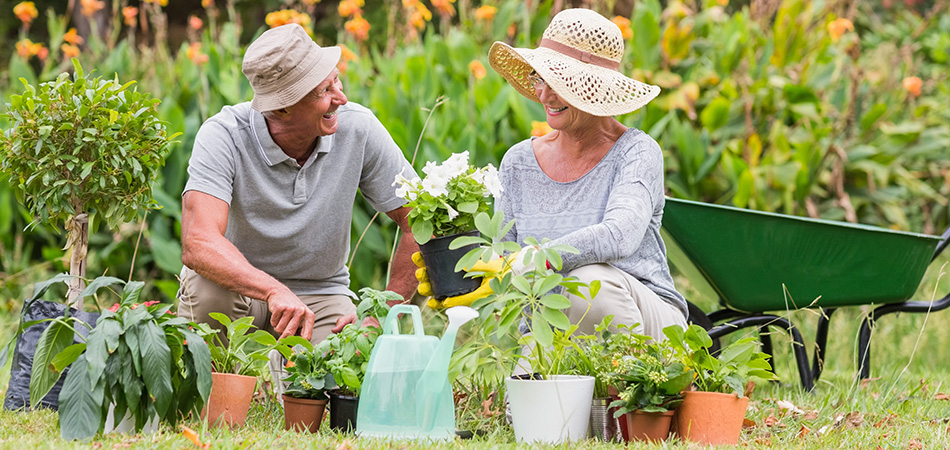Everyday Choices for a Healthier Planet

The world is changing, and not always for the better. Rising temperatures, shrinking forests, and oceans filled with plastic paint a daunting picture. Yet, amidst these challenges, there’s hope in the power of individual action. Sustainability isn’t just for experts or activists—it’s for everyone. By making small, intentional choices in our daily lives, we can create a ripple effect that benefits the planet. This article explores how everyday actions, from reducing waste to conserving energy, can lead to a positive environmental impact. Ready to explore? Let’s dive into practical ways to start today.
Why Sustainability Matters
Sustainability is about living in a way that preserves the Earth’s resources for future generations. It’s about balancing our needs with the health of the planet. Every year, humanity consumes more resources than the Earth can replenish, from water to forests to clean air. The good news? You don’t need to overhaul your life to make a difference. Small, consistent changes in how you shop, eat, and use resources can add up to meaningful impact. Whether it’s cutting down on plastic or turning off lights, these actions contribute to a larger movement toward a healthier planet.
The beauty of sustainable living is that it’s accessible. You don’t need to be wealthy, an expert, or have endless free time. It’s about making choices that align with preserving the environment while often saving you money and improving your quality of life. Let’s break down some key areas where you can start: waste reduction, energy conservation, water saving, and mindful consumption.
Reducing Waste: Small Steps, Big Impact
Waste is one of the biggest environmental challenges. Landfills are overflowing, and plastics pollute rivers, oceans, and even the food chain. The solution lies in the classic “reduce, reuse, recycle” approach, which anyone can adopt.
Start with reducing. Before buying something new, ask yourself: Do I really need this? Choosing products with minimal packaging or opting for bulk items can cut down on waste. For example, bringing a reusable bag to the grocery store instead of using plastic ones can prevent hundreds of bags from piling up in landfills over time. Reducing also means saying no to single-use items like straws, coffee cups, or cutlery. A reusable coffee mug or metal straw is a small investment with long-term benefits.
Reusing is about giving items a second life. Old jars can become storage containers, and worn-out clothes can be repurposed into rags or donated. Instead of buying new, consider shopping second-hand for clothes, furniture, or electronics. This not only cuts waste but also reduces the demand for new production, which often involves heavy resource use.
Recycling is the final step, but it’s not a cure-all. Properly sorting your recyclables—paper, glass, metal, and certain plastics—ensures they’re repurposed instead of landfilled. Composting food scraps and yard waste is another powerful way to recycle. By turning organic waste into nutrient-rich soil, you reduce landfill contributions and help your garden thrive. These steps are simple but effective, and when practiced consistently, they can transform your environmental footprint.
Conserving Energy: Powering a Greener Future
Energy use is a major driver of environmental harm, as most electricity still comes from burning fossil fuels. The good news is that conserving energy is easier than you might think, and it often saves money too.
Start at home. Unplug electronics when they’re not in use, as many devices draw power even when turned off. Switching to LED bulbs is a game-changer—they use a fraction of the energy of traditional bulbs and last years longer. Adjusting your thermostat can also make a difference. Lower it a few degrees in winter or raise it in summer to reduce heating and cooling costs. If you’re able, consider energy-efficient appliances, which use less electricity and water.
Transportation is another area to focus on. Walking, biking, or taking public transit instead of driving reduces emissions. If driving is unavoidable, carpooling with friends or coworkers can cut your impact in half. For longer trips, consider trains over planes when possible, as they’re generally less polluting. Even small tweaks, like combining errands into one trip, save fuel and reduce air pollution.
Outdoors, try air-drying clothes instead of using a dryer, which is one of the most energy-hungry appliances. If you celebrate holidays with lights, opt for LED decorations and limit their use to key times. These choices not only lower your energy bill but also reduce the strain on the planet’s resources, helping to slow climate change.
Saving Water: Every Drop Counts
Water is life, yet many regions face shortages due to overuse and climate shifts. Conserving water doesn’t require drastic changes—just mindful habits.
In the bathroom, shorten your showers to five minutes or less. Installing a low-flow showerhead can cut water use without sacrificing pressure. Turn off the tap while brushing your teeth or shaving to avoid wasting gallons daily. In the kitchen, only run the dishwasher when it’s full, and fix leaks promptly—a dripping faucet can waste thousands of gallons a year.
Outside, water your plants early in the morning or late in the evening to reduce evaporation. If you have a garden, consider a rain barrel to collect water for plants. Choosing drought-tolerant plants or xeriscaping can further reduce your water needs. Even your diet plays a role—producing meat requires far more water than growing vegetables or grains. Incorporating more plant-based meals, even just a few times a week, can save thousands of gallons annually.
These habits preserve water for communities and wildlife, ensuring ecosystems stay balanced. Plus, they often lower your utility bills, making it a win-win.
Mindful Consumption: Smarter Choices for a Better Planet
What we buy and consume shapes the environment. From food to clothes to gadgets, our choices drive production, which can either harm or help the planet.
In the kitchen, prioritize local, seasonal foods. They require less transportation, which means fewer emissions. Reducing meat and dairy consumption is one of the most impactful choices you can make, as livestock farming uses vast amounts of water and land while producing significant emissions. Try “Meatless Mondays” or experiment with plant-based recipes to ease into it. When shopping, bring reusable produce bags and choose items with minimal packaging.
Fashion is another critical area. The fast fashion industry churns out cheap clothes that often end up in landfills within a year. Instead, shop second-hand or invest in high-quality pieces that last. Repairing clothes—like sewing a button or patching a tear—extends their life and saves resources. When buying new, look for brands that use eco-friendly materials or ethical practices.
For other purchases, focus on durability. A sturdy phone case or a well-made pair of shoes might cost more upfront but saves money and waste over time. Avoid trendy gadgets you’ll only use once. When traveling, choose eco-friendly destinations or accommodations that prioritize sustainability, like hotels with water-saving policies or local tours that support conservation.
Building a Sustainable Community
Sustainability isn’t just personal—it’s collective. Share your habits with friends and family to inspire them. Join local clean-up efforts, support businesses with green practices, or advocate for better recycling programs in your community. Even small conversations about sustainability can plant seeds of change.
For example, organizing a neighborhood swap for clothes or household items reduces waste and builds community. Supporting local farmers’ markets strengthens sustainable agriculture. If you’re passionate, consider volunteering for environmental groups or starting a community garden. These actions amplify your impact and create a culture of care for the planet.
The Ripple Effect of Small Actions
The beauty of sustainable choices is their cumulative power. One person composting or biking to work might seem small, but when millions do it, the impact is massive. These actions also save money, improve health, and foster a sense of purpose. You’re not just helping the planet—you’re building a better life.
Start small. Pick one habit, like carrying a reusable water bottle or turning off lights when leaving a room. Once it feels natural, add another. Over time, these choices become second nature, and you’ll inspire others to follow suit. The planet doesn’t need perfection—it needs progress.
Ready to Start?
You have the power to make a difference today. Choose one action—whether it’s reducing waste, saving energy, conserving water, or shopping mindfully—and commit to it. Track your progress, celebrate small wins, and share your journey. Sustainability is a marathon, not a sprint, and every step counts. By making these choices, you’re not just preserving the environment—you’re shaping a brighter, greener future for all.
